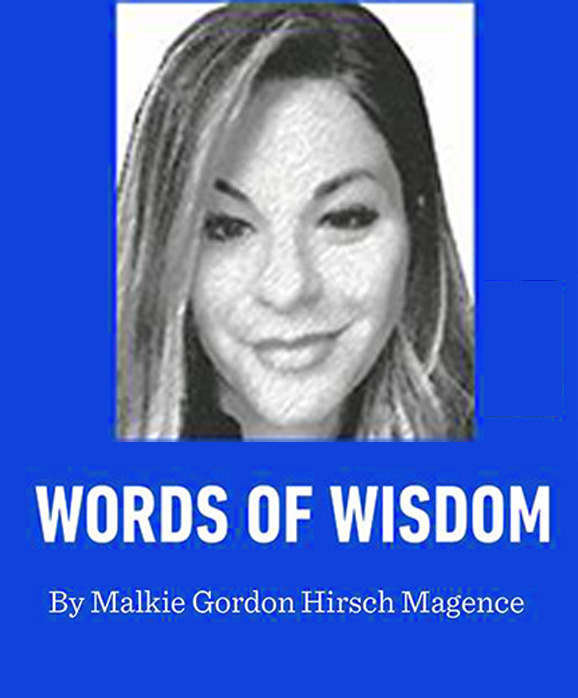Rosh Hashanah Reflections
By: Malkie Gordon Hirsch Magence
I wasn’t much of a student. Ask my mother, and she’ll happily remind you that while I was smart enough, I never had much motivation to put in the effort.
And yet, a handful of things from my school years stuck. Certain words, certain lessons, certain moments—etched into my memory with surprising permanence.
One in particular came from sixth grade. Our teacher was reviewing the tefillos with us and asked which pasuk in Ashrei was the most important. Hands shot up with guesses, all rejected, until the girl deemed the “smartest in the class” finally raised her hand and answered confidently:
“Poseach es yadecha umasbia lechol chai ratzon.”
Without hesitation, the teacher confirmed it: That’s the one. She stressed how much extra kavanah should go into that line.
It’s powerful—this idea that Hashem opens His hand and provides sustenance for all life. We say it multiple times a day, and yet, is even that enough to acknowledge all that He does for us daily?
But the verse has always puzzled me. It doesn’t say “He gives us what we need.” It says He “satisfies the desire” of every living being.
That sounds inaccurate.
After all, we don’t always get what we want.
I once learned an explanation that changed how I saw it. The pasuk doesn’t mean G-d fulfills every want.
Rather, He gives us the capacity to feel satiated, even while wanting. The very existence of ratzon—the will, the longing, the hunger—is itself what sustains us.
Without wanting, how would we ever feel fulfilled? Without goals to reach for, life becomes flat. Sometimes that’s why those who “have it all”—celebrities, the uber-successful—end up so lost. Without something left to strive for, the “top” can feel painfully empty.
It’s the wanting that keeps us alive.
And maybe it’s also the hard parts of life—the disappointments, the pain—that sharpen our appreciation for the blessings.
Do we truly value what we have if we’ve never tasted loss?
I learned this lesson the hard way. In one of the darkest seasons of my life, when the pain felt unbearable, I surrendered. I began quiet conversations with Hashem. Not demands, just honesty: I’ll accept this, but only if You give me the strength to heal. To carry my family through it whole. To not leave anyone behind.
It was my moment of giving in—of understanding that no person could do what He does.
Time passed, and slowly, we grew stronger. My children no longer dread Shabbos and yom tov like they did after their father passed, no longer feel unsettled about davening in a different shul than they used to, or standing next to someone other than their father.
It’s not that life got easier, but that we got sturdier. Healing doesn’t erase the loss, but it weaves resilience into the fabric of who we are.
As the Kotzker Rebbi said “A complete heart is a broken heart”—in those cracks is where the light of G-d gets to shine in and comfort those who have doubts that they could ever feel whole again.
I still don’t have all the answers. Maybe I never will. But faith fills the gaps where reason fails just like light fills the cracks of a broken heart.
I’ve learned to take the bad with the good—though maybe I can’t always tell which is which.
A few months ago, as I prepared sourdough for an upcoming Shabbos, I sliced my thumb badly with the scoring razor.
At the doctor’s office, as he stitched it up, he explained how to care for the wound. Bandages, ointment, patience. Only then did I realize just how much a thumb does—opening jars, buttoning clothes, holding utensils. You don’t notice its worth until you can’t use it.
And isn’t that life? We only truly appreciate what we have once we’re forced to go without.
So as we daven for chayim this Rosh Hashanah, maybe part of what we’re really asking for is what’s hidden in that pasuk of Ashrei: the gift of ratzon—the will to live, to strive, to yearn. Because it’s in the yearning that life feels full, and in the wanting that we learn to be grateful for what we already hold.
Malkie Gordon Hirsch Magence is a native of the Five Towns community, a mom of five, a writer, and a social media influencer.









